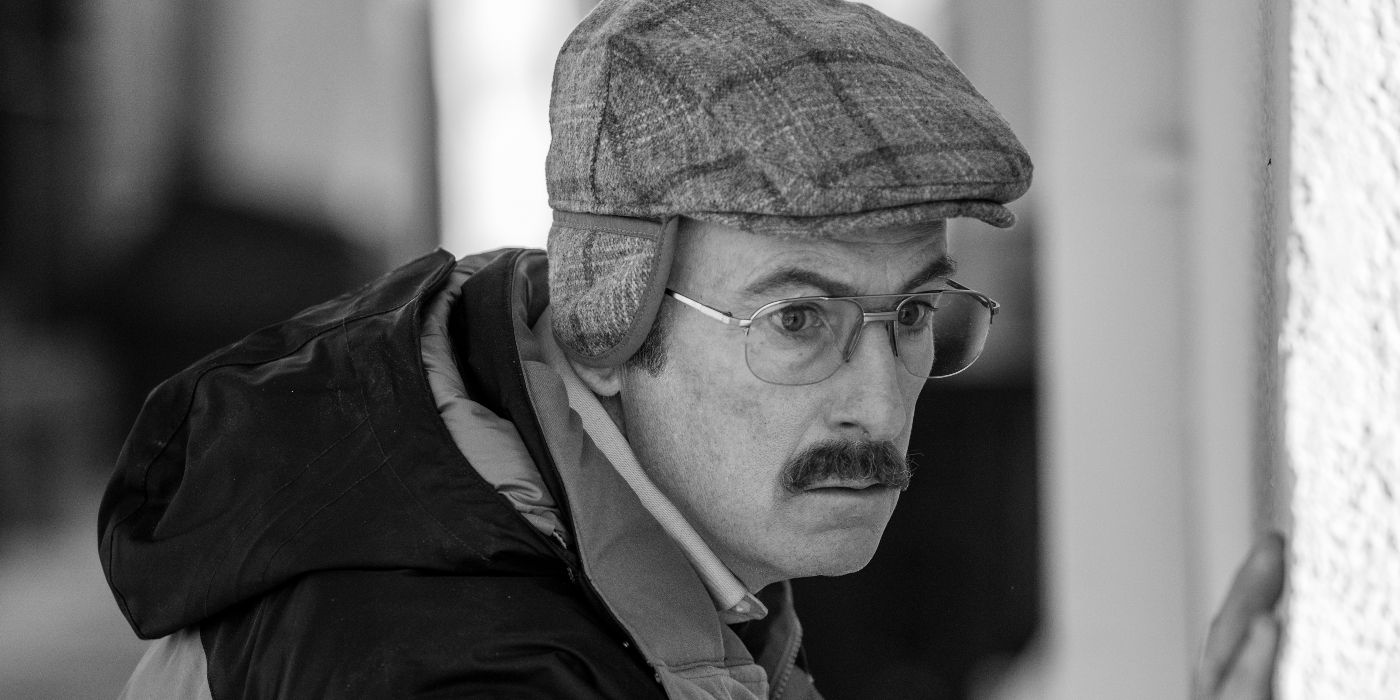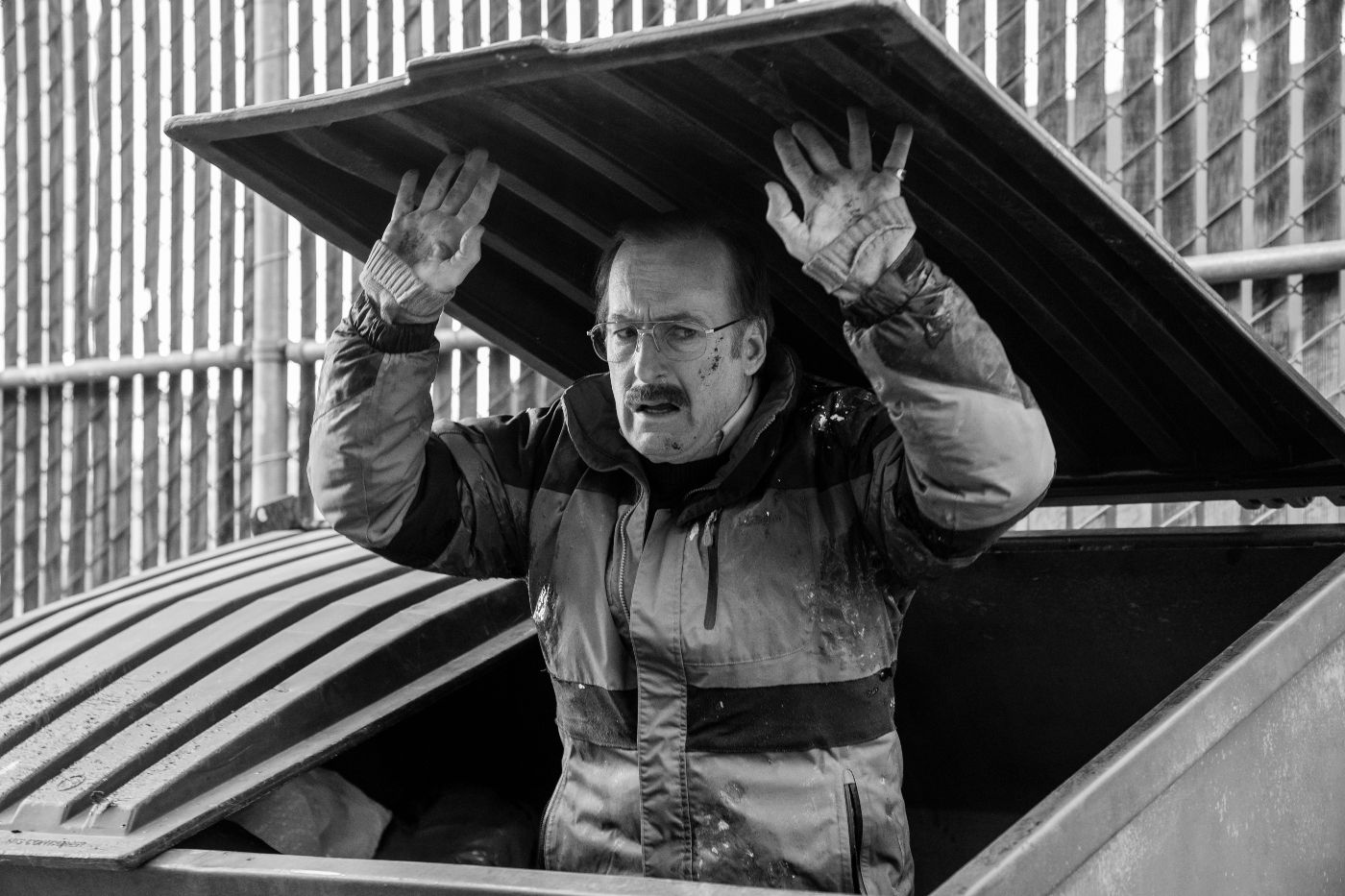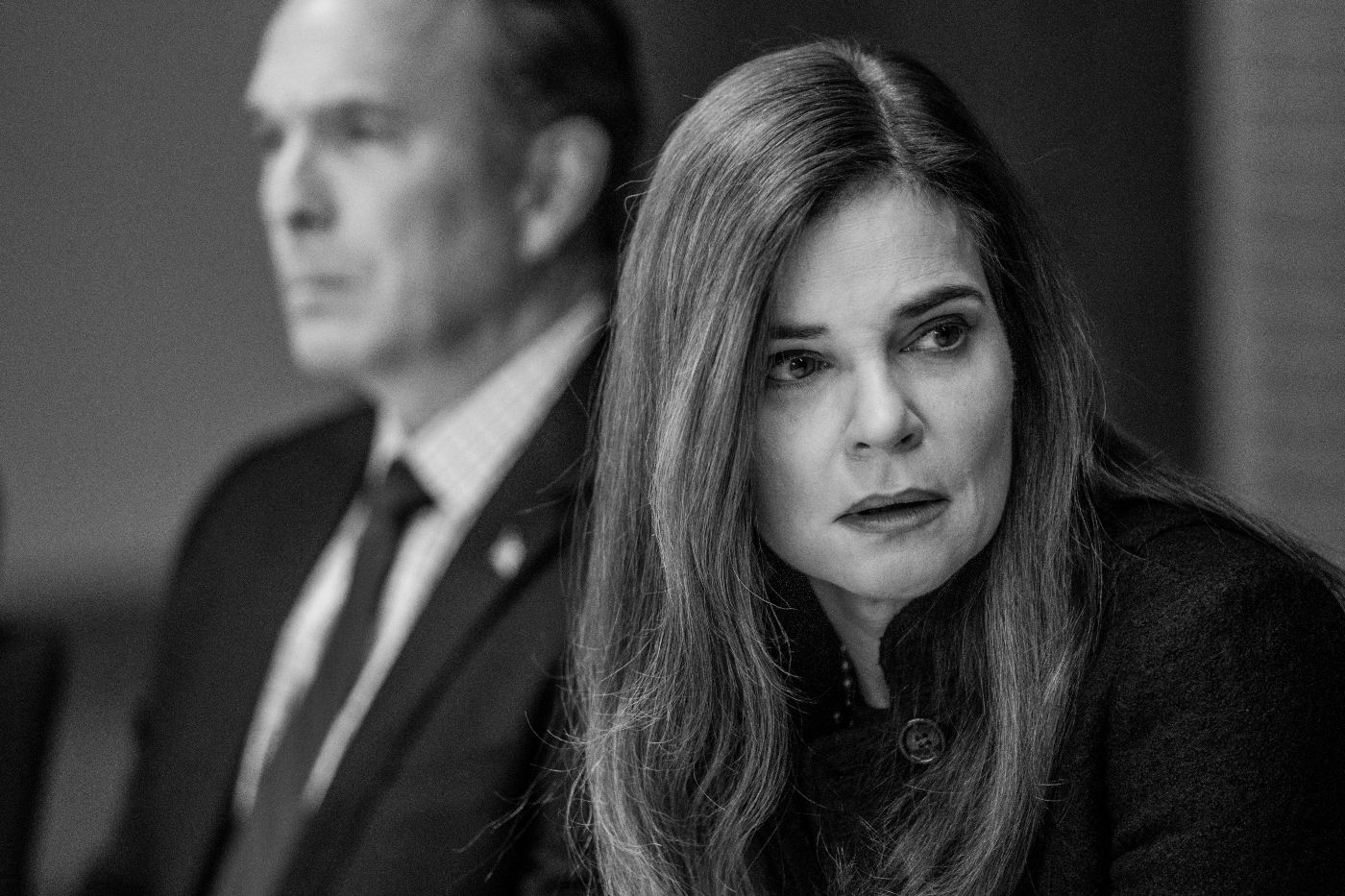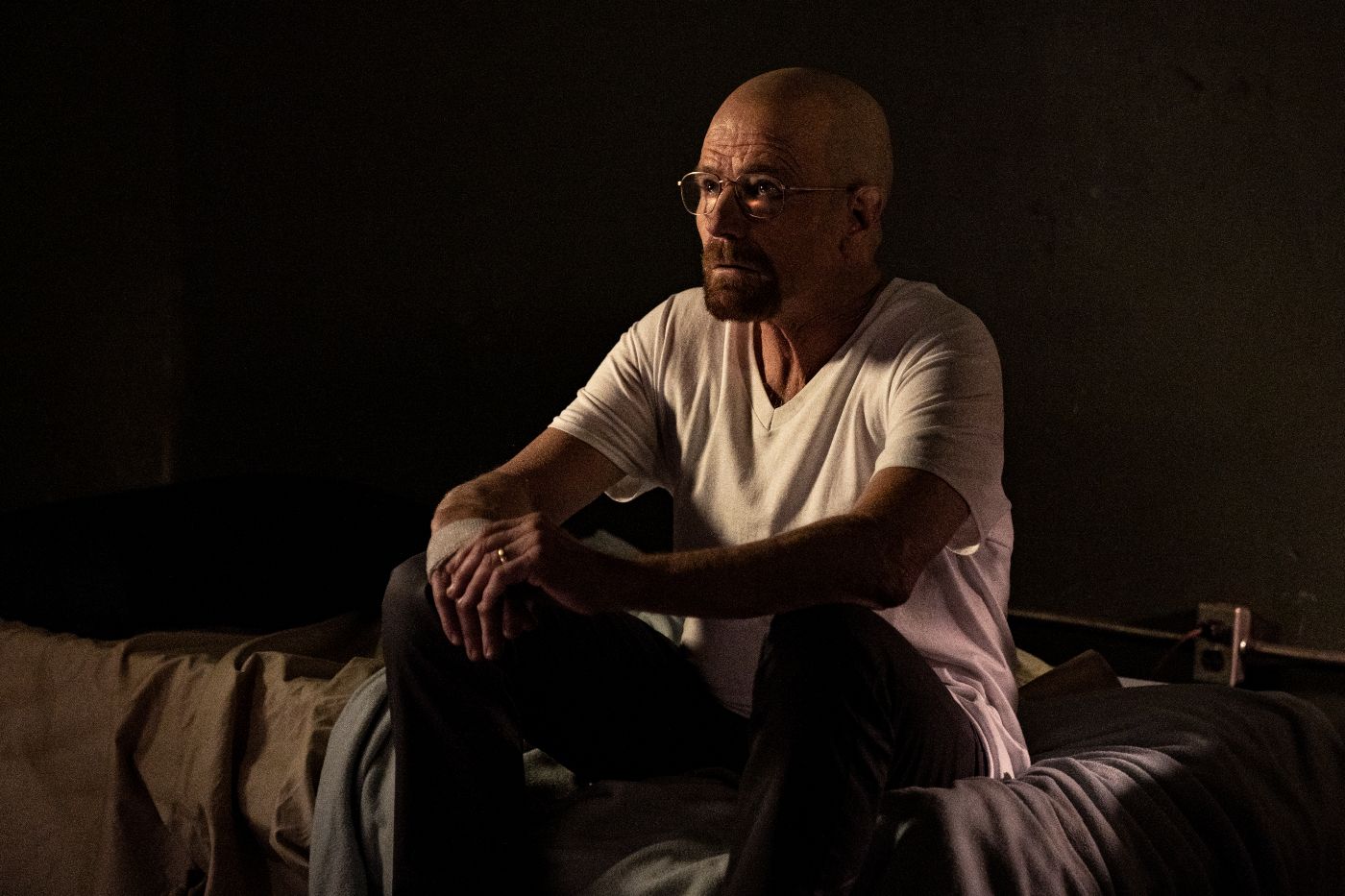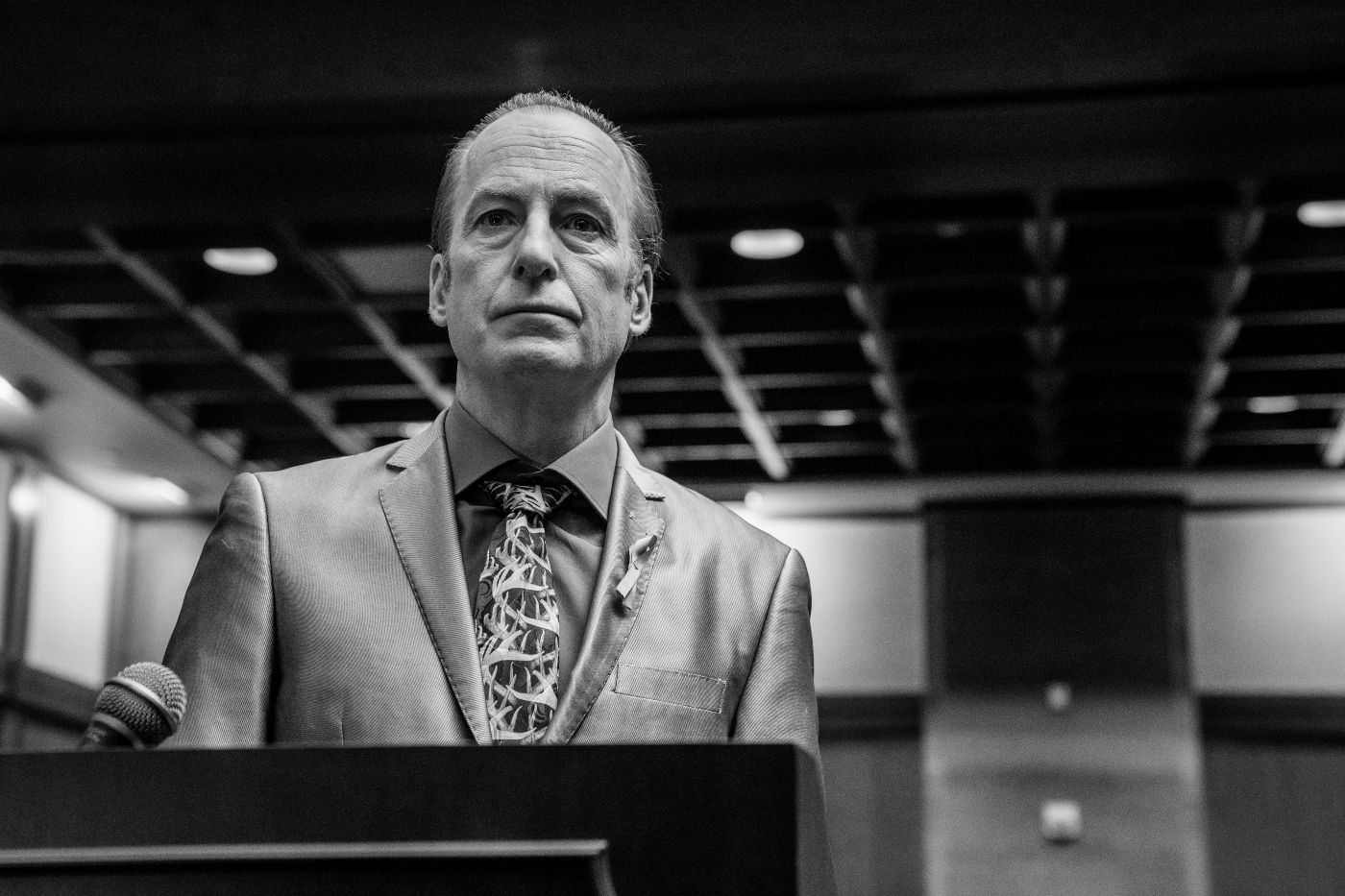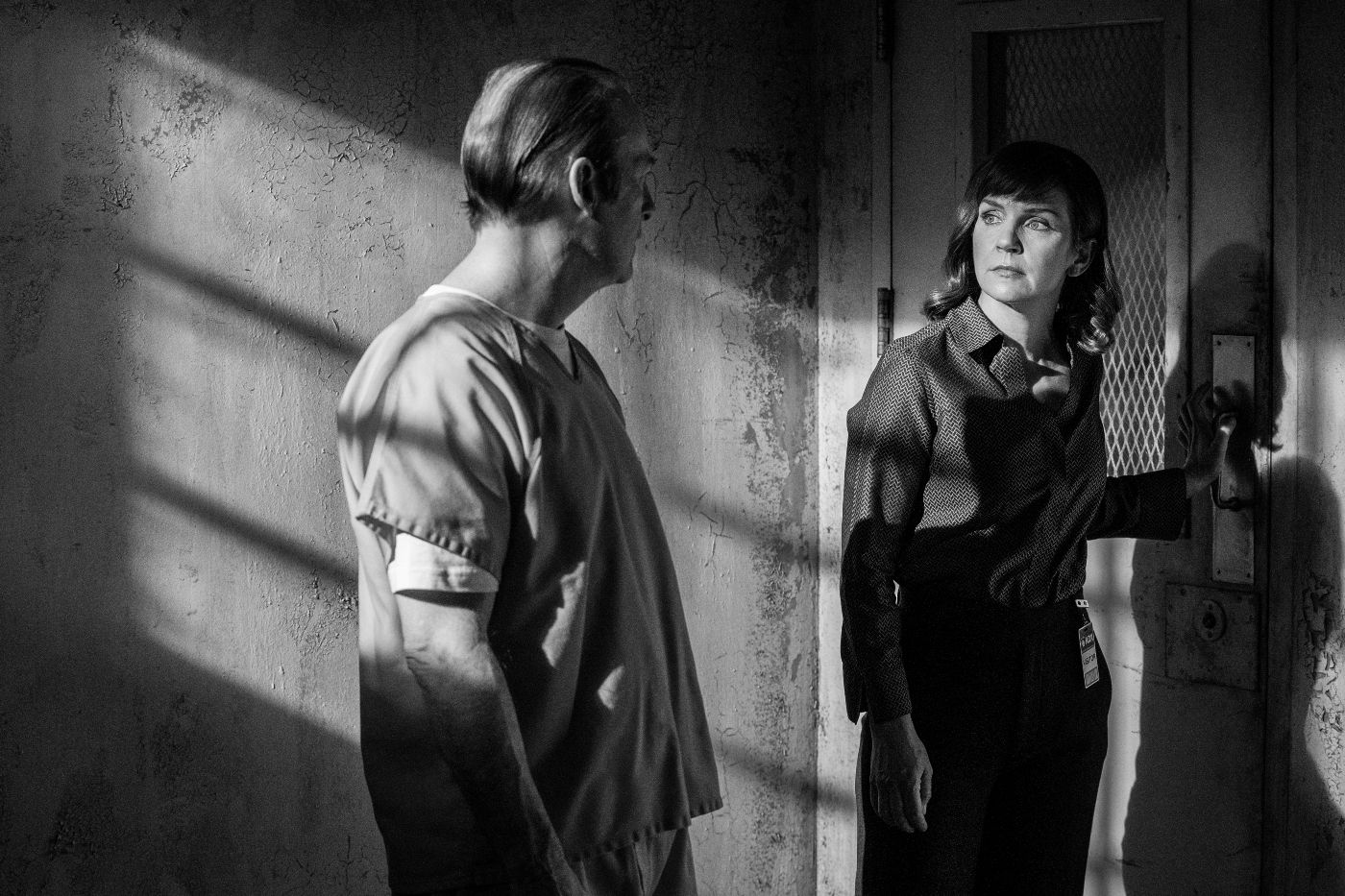With exactly one episode more than Breaking Bad, Better Call Saul reached its end last night, revealing the final destination of Saul Goodman's (Bob Odenkirk) criminal journey. Focused on several moments of Saul’s life, Better Call Saul’s series finale forces the crooked lawyer to confront the people he’s hurt to decide, once and for all, what legacy he wants to leave behind.
There’s a lot to unpack here, and with all the time jumps, things can be somewhat confusing. That’s why we’ll recap all the main events of Better Call Saul Season 6, Episode 13, "Saul Gone." We might never return to the Breaking Bad universe again, so let’s take the time to say our farewells.
Let's Make a Deal
Episode 13 takes us back to where we last saw Saul, running from Marion’s (Carol Burnett) house after the elderly woman recognized him and called the police. As expected, Saul stops by his house to grab a pile of money, a burner phone, and the number for Edward "Ed" Galbraith, the Disappearer (Robert Forster). The last episode could have been about the manhunt, as Saul tries to evade the police, forge a new identity, and disappear again. Instead, the search ends quickly, as Saul is quickly found inside a Dumpster.
Saul is apprehended, knowing that he’ll be gone for a long time for a very long list of crimes. He won’t go down without a fight, though, first calling William Oakley (Peter Diseth), his former nemesis turned defense attorney. The chance of making a career defending the famous Saul Goodman is too good for William to pass on, and so he flies to Nebraska to act as an advisory counselor (with Saul representing himself, of course).
During a hearing with the prosecution team, Saul is presented with the punishment the government is pursuing, which ensures he’ll die in prison. Saul apparently has no way out of his dire situation until he invites Marie Schrader (Betsy Brandt) into the room. The widow is watching the meeting from behind a mirror before confronting Saul face to face. During their encounter, Saul talks about when Walter White (Bryan Cranston) and Jesse Pinkman (Aaron Paul) kidnapped him, took him to the desert, and threatened to kill him close to an open grave. The scene has been recently revisited in Episode 11 and marks the beginning of Saul's very profitable business with Walter’s drug empire.
We all know Saul didn’t help Walter out of fear, but that’s the narrative he gives the prosecutors. He knows a jury might fall for his sad story, taking down the prosecution's case, so it’s in everyone’s best interest if they can strike a deal. Saul is smart, knows the law like the back of his hand, and is successful in pushing his demands. Instead of spending his life behind bars, he only gets seven-and-a-half years in a prison of his choosing. Since Saul Goodman takes pleasure in humiliating his adversaries, he also tries to add mandatory ice cream to his plea deal. In exchange, he offers the truth about Howard Hamlin (Patrick Fabian). The prosecution tells Saul that his ex-wife, Kim Wexler (Rhea Seehorn), has already signed a confession regarding Howard, which completely changes Saul's strategy. At first, he thought he was tricking the government into giving him a good deal, but now he realizes Kim’s life will also be affected by his choices.
Regrets and Time Machines
While the finale mainly focuses on Saul’s legal battle after he’s incarcerated, "Saul Gone" also takes us back in time to moments when the crooked lawyer was forced to weigh his choices. First, we go back to the desert where Saul almost died of dehydration by the side of Mike Ehrmantraut (Jonathan Banks). The duo was carrying seven million dollars to free Lalo Salamanca (Tony Dalton), and Saul thought more than once he would die from the heat before reaching civilization. In the middle of their dangerous journey, Mike and Saul find a well.
After drinking and filling their bottles, Saul asks Mike what he would do if they just used the money to build a time machine. Mike says he would go back to the day he accepted his first bribe so that he would never be involved with crime. Saul, on the other hand, would go back in time to place some profitable investment that would turn him into a billionaire in the present. So, while Mike regrets some of his choices, Saul is only concerned about personal gain.
A similar dialogue happens in the second flashback scene, set at the moment when Saul and Walter had to stay hidden in a basement while the Disappearer worked on their escape. When faced with the same time machine-related question, Walter says he regrets ever leaving the company he helped to create. It’s interesting to see Walter still blames external forces for his criminal endeavors at this time and has not yet owned his mistakes. Still, he wished somehow never to have become Heisenberg. As for Saul, he reveals he regrets having hurting himself while scheming against some people in his youth. Not the scheme itself, only the part where he was hurt. Once again, we see that Saul might be irredeemable, as he truly doesn’t care about harming other people.
The final flashback scene brings back Charles McGill (Michael McKean), Saul’s deceased brother. In the scene, Saul brings groceries to his brother, confined to his own home due to his self-diagnosed “electricity allergies.” As usual, Charles tries to make Saul feel bad about his choice of becoming a lawyer and suggests his brother should change paths. Saul, however, points out how Charles never looked back on his choices, and he intends to follow in his big brother’s footsteps. Interestingly enough, Charles is reading a copy of H.G. Wells’ The Time Machine, which might explain where Saul’s obsession with time traveling comes from. The scene also underlines how every interaction between the two brothers turns the same, with Charles telling Saul he cannot change who he is and Saul trying to become better.
Saul’s Legacy
While being extradited to New Mexico for a court session where his deal will be made official, Saul learns that Kim might face a civil suit by Howard's widow Cheryl (Sandrine Holt). He then asks for new information to be included in his deal, as he promises to reveal more about Kim’s involvement with Howard’s death in an exchange for the ice cream he wants. The promise is a ruse, though, created to force Kim to be present during the court hearing.
During the hearing, Saul decides to defend himself, asks to explain how he got such a great deal, and starts to tell about the time he got kidnapped by Walter. However, instead of playing the victim, Saul reveals he didn’t feel threatened by Walter and joined his criminal organization because he saw the opportunity to make millions — and while he didn’t directly call the shots, he knew Walter was responsible for the death of dozens of people. Saul was fine in aiding a criminal if he could get rich in the process, even underlining how Walter and Jesse would probably have been dead or in prison after a few months if he'd never helped them Saul could have prevented Heisenberg from ever becoming the monster he turned out to be, but he decided money was more important.
During the hearing, Saul also reveals he plotted to disbar Charles and took responsibility for the scheme against Howard. With one speech, Saul demolishes his deal. But for the first time in his life, he tells the truth without hidden intentions. He also asks to be called Jimmy McGill, the name he was born with, burying Saul Goodman once and for all. Nevertheless, you cannot get rid of your legacy. During his transportation to a prison where he is sentenced to spend 86 years, the other inmates recognize Saul Goodman. The prisoners start to chant his slogan, excited to be in the presence of a legend of the criminal world. Even though Jimmy wants to forget about Saul, he’ll always be remembered for the damage he has done.
Better Call Saul ends with Kim visiting Jimmy in prison. After all these years, Kim still has the right to act as a lawyer, and after confessing everything she knew about Howard’s death, she decided to volunteer for a free legal aid organization. With a renewed passion for the law, Kim gets a chance to speak with Saul as a legal defender. The two share a cigarette, just like old times, before saying their goodbyes. Kim knows why Saul did what he did and is now free to build a life for herself without worrying about her past. As for Saul, he knows he’ll die behind bars, but he’s finally acknowledging that maybe prison is the right place for him to be.
It’s a bittersweet ending, without a doubt, because we had the opportunity to understand Jimmy’s choices and cheer for him — but after everything Saul has done, life in prison is the closest to a happy ending that he deserves. Now, all that’s left for us is binge-watching everything while we wait to see what series creator Vince Gilligan comes up with next.

